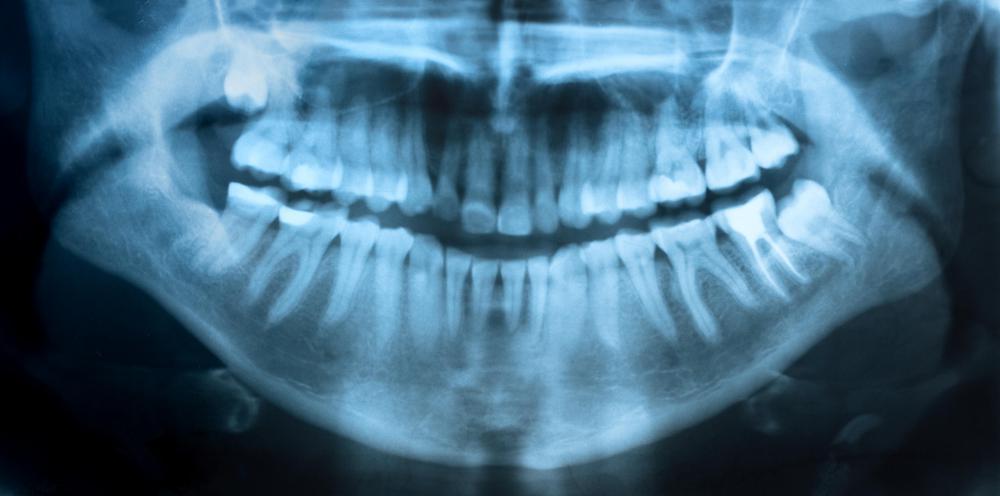At TheHealthBoard, we're committed to delivering accurate, trustworthy information. Our expert-authored content is rigorously fact-checked and sourced from credible authorities. Discover how we uphold the highest standards in providing you with reliable knowledge.
What Is Clinical Dentistry?
Clinical dentistry involves the study and implementation of medical procedures that are performed on the teeth and on other structures in the mouth. Most of these procedures are performed in a dental clinic with a staff of dentists and various assistants. The discipline covers a large field of subspecialties, including implant dentistry, periodontology, and oral surgery.
A typical clinic will house one or more dentists, who may either work in general dentistry or work as a specialist in one of the subdisciplines. A general dentist performs tooth and gum examinations, makes diagnoses, and performs procedures on patients. Dental assistants, technicians, and hygienists provide support to the dentist. Most employees will be proficient in using various dental tools, such as X-ray machines, scalpels, and dental mirrors.

Restoration of impaired teeth is a major focus of clinical dentistry. If a patients has holes in the teeth, for example, the dentist might fill in the cavity with durable material or place a protective covering called a crown on the tooth. Individuals who demonstrate damage to the delicate tissues inside the tooth, on the other hand, may require a root canal in which the nerves in a tooth are removed.

Practitioners of clinical dentistry also emphasize maintenance of healthy teeth. As such, many dental offices offer tooth cleanings to patients. Employees also educate patients about proper self-care procedures like flossing and brushing teeth. Clinicians who detect crooked or overly spaced teeth or a misaligned bite in a patient may refer the individual to another clinical dentistry subspecialist: the orthodontist.

Another common area of focus in clinical dentistry is the creation and installation of tooth implants. Individuals with advanced tooth decay or injury may require one or more false teeth. Implant dentistry is responsible for these devices. Partial tooth-like materials may also be implanted in a patient as bridgework.
Teeth are not the exclusive focus of clinical dentistry. Other supportive structures in and around the mouth like the gums and the jawbones may also be studied and treated by dentists. Clinical periodontology is a dental subdiscipline devoted to these areas. Several diseases and conditions of the mouth area — such as wisdom tooth removal — necessitate surgical intervention as well, and these procedures are the domain of oral or maxillofacial surgeons.

Certification in clinical dentistry typically requires advanced education and graduation from an accredited dental school. Additional education and certification may be essential for specialization. Following graduation, many dentists opt to open private clinics, whereas others seek employment in a larger organization.
AS FEATURED ON:
AS FEATURED ON:
















Discussion Comments
@indigomoth - To be honest, I'd rather have a dentist who was a jerk but was good with his job. I've heard some horror stories about dentists and my own father had an accident with an incompetent dentist that left him with permanent damage.
When I'm trying to find a dentist I look for one with a lot of experience, who went to a respectable school and so forth. Even then, I would never go back to one that didn't do really good work.
@Iluviaporos - I know what you mean. I think the fact that going to the dentist freaks people out so much is mostly due to the fact that they feel so vulnerable and the dentist isn't always that nice a person.
Whenever I have to find a new dentist, I always try to read recommendations online to see what people say about them. Because most dentists are going to be competent with your teeth. I think the difference is in how they deal with you as a person.
I had to go to the dentist the other day and it was my first time at this particular dentist. I usually find them a bit abrupt and unwilling to listen to the patients, but this one was really nice.
The thing that made me realize she was different was that she really listened to me when I said that my filling had cracked while I was flossing. After she had filled it back in again, she told her assistant to go and get some floss so that she could make sure that I would still be able to do that.
I've had dentists who put the new filling in so that it was very difficult to floss (which is the most important step in tooth hygiene). The fact that she went out of her way to make sure that wasn't the case this time really meant a lot to me. I'm definitely going to go back.
Post your comments